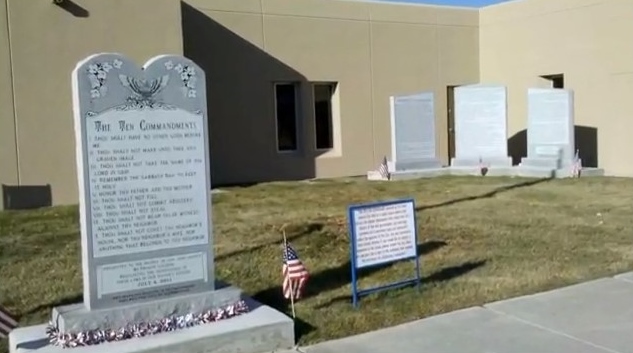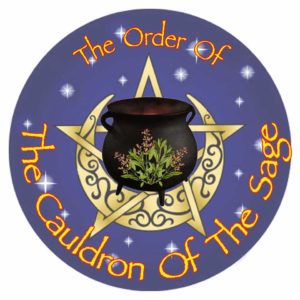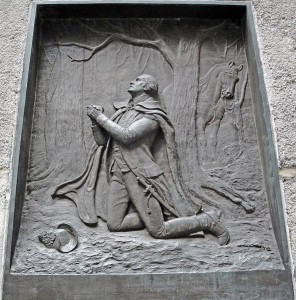 WASHINGTON — Attorneys general and governors from 23 states, as well as 24 members of Congress, have filed briefs asking the U.S. Supreme Court to hear a case involving a Ten Commandments monument in New Mexico that is the subject of a lawsuit filed by two Wiccan women who took offense at the display.
WASHINGTON — Attorneys general and governors from 23 states, as well as 24 members of Congress, have filed briefs asking the U.S. Supreme Court to hear a case involving a Ten Commandments monument in New Mexico that is the subject of a lawsuit filed by two Wiccan women who took offense at the display.
“[C]ertiorari is warranted here to clarify the Establishment Clause doctrine that applies to a common manifestation of religion-influenced expression on governmental property—Ten Commandments displays,” the brief for the coalition of state officials reads. “The Ten Commandments, which ‘are regarded as a significant basis of American law and the American polity,’ are frequently displayed on public property.”
“After all, ‘[a] relentless and all-pervasive attempt to exclude religion from every aspect of public life could itself become inconsistent with the Constitution,'” it outlines, quoting from the prominent Supreme Court case of Lee v. Weisman.
Signees include Attorneys General Steve Marshall of Alabama, Christopher Carr of Georgia, Derek Schmidt of Kansas, Timothy Fox of Montana, Adam Laxalt of Nevada, Michael DeWine of Ohio, Brad Schimel of of Wisconsin, Ken Paxton of Texas and M. Stephen Pitt of Kentucky.
The Congressional brief notes that Congress itself has referenced God in various ways throughout the nation’s history, and many American leaders have publicly recognized the Almighty in their official capacities.
“National memorials and federal buildings invoke the judgment, compassion, and glory of God to honor our history and hallow our war dead,” it reads. “Congress has also enacted legislation directing that ‘In God We Trust’ appear on the currency, and establishing the same phrase as the national motto.”
“As the D.C. Circuit has recognized, presidents of both parties have long invoked God in their speeches, whether Lincoln’s address to ‘a war-weary nation [about] ‘malice toward none’ and ‘charity for all [ ] with firmness in the right as God gives us to see the right,’ Kennedy’s exhortation that ‘here on earth God’s work’ must be our own,’ or Reagan’s vision of ‘the shining city … built on rocks stronger than oceans, windswept, God-blessed, and teeming with people of all kinds living in harmony and peace,’ the brief notes.
The Congressional leaders contend that simple offense should not be standing for a lawsuit.
“But the offended-observer doctrine gives a heckler’s veto over displays commemorating those speeches. Such a result is inconsistent with our traditions, and the Court should grant certiorari to eliminate any doubt that offense is not an injury under [federal law],” the brief outlines.
Signees include Sens. Ted Cruz of Texas, Charles Grassley of Iowa, John Boozman of Arkansas and James Lanford of Oklahoma; Reps. Jody Hice of Georgia, Jeff Duncan of South Carolina, Doug Lamborn of Colorado, Trent Franks of Arizona, Vicky Hartzler of Missouri and Jim Banks of Indiana.
The Foundation for Moral Law, led by the wife of Alabama “Ten Commandments Judge” Roy Moore, the Chaplain Alliance for Religious Liberty, the American Center for Law and Justice, the Fraternal Order of Eagles, the Wisconsin Institute for Law and Liberty and the Congressional Prayer Caucus Foundation also filed separate amicus briefs with the court.
BACKGROUND

As previously reported, the monument at issue had been erected in 2011 following a resolution allowing private citizens to place historical displays at Bloomfield City Hall. A former city council member had proposed the monument four years prior, which was then approved by city council but paid for with private money.
“Presented to the people of San Juan County by private citizens recognizing the significance of these laws on our nation’s history,” the monument read, which was unveiled during a special ceremony on Independence Day 2011.
But Wiccans Jane Felix and Buford Coone of the Order of the Cauldron of the Sage felt offended by the monument and contacted the American Civil Liberties Union (ACLU) for assistance.
“Our clients who are not Christians, they took issue with this and it made them feel alienated from their community,” Alexandra Smith, legal director for the American Civil Liberties Union (ACLU) of New Mexico, told local television station KRQE.
The organization filed a lawsuit against the city in 2012, asserting that the monument’s presence on government property amounts to the government endorsement of religion. While the city argued before the court that the monument was historical in nature, the ACLU contended that the content of the Commandments themselves is blatantly religious.
“One of the commandments is thou shalt put no gods before me. This is clearly not a historical document, but is in fact religious doctrine,” Smith stated.
In August 2014, U.S. District Judge James Parker, nominated to the bench by then-President Ronald Reagan, sided with the Wiccans, declaring that the Decalogue violated the First Amendment to the U.S. Constitution.
“In view of the circumstances surrounding the context, history, and purpose of the Ten Commandments monument, it is clear that the City of Bloomfield has violated the Establishment Clause because its conduct in authorizing the continued display of the monument on City property has had the primary or principal effect of endorsing religion,” he wrote.
The city appealed, and in November, the 10th Circuit upheld Parker’s ruling, stating that the addition of historical monuments adjacent to the Ten Commandments did not fix the constitutional infirmities.
“[I]t was especially inadequate here because of the plain religious motivations apparent from the approval (approved alone), financing (sponsored entirely by churches), and unveiling (ceremony rife with Christian allusions) of the Monument,” the three-judge panel wrote.
“In light of those considerations, and the situational context of the Ten Commandments on the lawn, the City would have to do more than merely add a few secular monuments in order to signal to objective observers a ‘principal or primary’ message of neutrality,” it concluded. “Because we find an impermissible effect of endorsement that is insufficiently mitigated by curative efforts, we affirm.”
The city then sought an en banc, or full appeals court, review of the case, but the request was denied.
DISSENT: INTERPRETING THE ESTABLISHMENT CLAUSE

However, two judges dissented, noting that their colleagues had incorrectly interpreted the Establishment Clause.
“This decision continues the error of our Establishment Clause cases. It does not align with the historical understanding of an ‘establishment of religion’ and thus with what the First Amendment actually prohibits,” Judge Paul Kelly Jr. wrote, being joined by Chief Judge Timothy Tymkovich.
He noted that “[e]stablishment was … the norm in the American Colonies. Exclusive Anglican establishments reigned in the southern states, whereas localized Puritan establishments were the norm in New England, except in Rhode Island.”
This began in Europe, “the continent of origin for most American colonists,” Kelly outlined. “[E]ach country had long established its own state church—a generalized version of cuius regio, eius religio—over which each government exercised varying degrees of control. Germany and Scandinavia had official Lutheran establishments; Holland, a Reformed state church; France, the Gallican Catholic Church; Ireland, the Church of Ireland; Scotland, the Church of Scotland; and so on.”
Therefore, the Establishment Clause of the U.S. Constitution regarding “respecting an establishment” only referred to these arrangements, and only applied to the federal government, not the states.
“From the words of the text, though, two conclusions are relatively clear: first, the provision originally limited the federal government and not the states, many of which continued to support established churches; and second, the limitation respected only an actual ‘establishment of religion,’” Kelly explained.
“Though this court may view the placement of the Ten Commandments as unwise, unnecessary, or even aesthetically displeasing, we should defer to local government decisions absent an actual violation of the First Amendment,” he declared.
It is not yet known whether the U.S. Supreme Court will now agree to hear the case, but the religious liberties organization Alliance Defending Freedom (ADF) said in a statement, “We hope the U.S. Supreme Court will consider the arguments in these briefs, take this case, and affirm, as it recently did, that ‘an Establishment Clause violation is not made out any time a person experiences a sense of affront from the expression of contrary religious views.’”
Become a Christian News Network Supporter...


